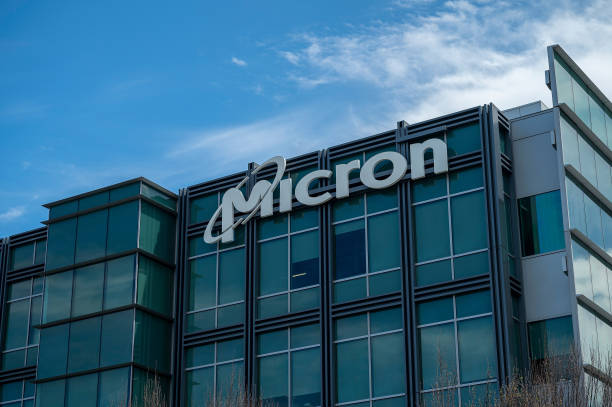
Micron Technology, a leading memory chipmaker, announced the implementation of a tariff-related surcharge that began on April 9, 2025 on select products for its customers. This pricing move directly responds to U.S. President Trump’s recently imposed tariffs dubbed “Liberation Day,” affecting only memory modules and solid-state drives (SSDs) in Micron’s products, exempting semiconductors.
The announced tariff-related surcharge comes shortly after the memory chipmaker had already notified customers in late March about upcoming price increases attributed to what the company described as “un-forecasted demand” for its products.
According to Reuters, who cited four sources familiar with the matter, the company communicated through a letter to customers that while semiconductors, a major part of Micron’s product portfolio will be exempted, memory modules and SSDs will instead be subject to the additional charges as a response to President Trump’s tariffs. It was also communicated that products that store data such as cars, laptops and even data center servers, would be subjected to this tariff-related surcharge.
Micron’s exposure to these tariffs is very much noticeable given its extensive manufacturing presence across Asia. The memory chipmaker’s manufacturing sites are largely based in Asia, including China, Taiwan, Japan, Malaysia, and Singapore, with these countries incurring tariffs of 54%, 34%, 24%, 24%, and 10% respectively. This geographic distribution exposes Micron to varying tariff rates as listed above, thereby creating a complex cost management challenge for the company.
The implementation of these tariffs has also sent shockwaves through global economies, triggering retaliatory levies from China and other countries, while also raising concerns about a potential global trade conflict and economic downturn. As such, this development has forced the hands of many companies, especially companies in the technology sector, to evaluate whether to absorb the tariffs or transfer the costs to their customers.
For the distinction in Micron’s products that would be affected by the tariff-related surcharge – memory modules and SSDs – it is so because they are extensively used across multiple industries and applications. These aforementioned products provide essential data storage capabilities for consumer electronics, automotive systems, data center services, and enterprise storage solutions.
Due to the widespread use of their products, the surcharge becomes very affecting, as it potentially impacts cost across the technology ecosystem from personal computing to enterprise infrastructure.
In fact, an executive from an Asian NAND module manufacturer told Reuters they’d be adopting a similar approach to Micron, where they highlighted the unjustifiable nature of absorbing any tariff-related costs.
“If they don’t want to bear the taxes, we cannot ship the products. We cannot be held accountable for the decisions made by your [U.S.] government,” the executive told Reuters. “With this kind of tax rate, no company can generously say, ‘I’ll take on the burden.’”
This sentiment towards Trump’s tariffs mirrors the broader industry response to the tariffs, with manufacturers being unwilling or unable to shield customers and absorb the associated cost increases.

